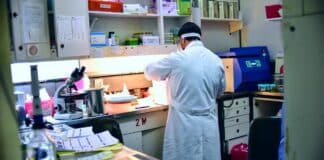ABC News aired an interview with Dr. Avril Benoît, the U.S. Executive Director of Doctors Without Borders (Médecins Sans Frontières, MSF), in which she suggested that Israel—not Hamas—is responsible for starving Israeli hostages held in Gaza. Her comments ignited criticism over media bias and the politicization of humanitarian narratives.
The controversy centers on Benoît’s remarks following the release of a disturbing video showing hostage Evyatar David, visibly emaciated and forced by Hamas to dig what appeared to be his own grave. Benoît claimed Hamas might be feeding hostages if Israel allowed more humanitarian aid into Gaza, placing the burden for hostage conditions on Israeli policy decisions.
Critics argue her comments ignored extensive evidence—including footage released by Hamas—demonstrating captors eating normally while prisoners were deprived of food. Observers labeled Benoît’s framing as morally inverted, shielding Hamas from responsibility while scapegoating Israel.
Doctors Without Borders has long faced scrutiny for its stance on the Israeli-Palestinian conflict. MSF has repeatedly accused Israel of collective punishment but has been criticized for failing to directly condemn Hamas terrorism. The group’s refusal to acknowledge Hamas’s responsibility for hostage treatment has further eroded trust in its neutrality, particularly among conservative audiences.
The interview drew backlash from families of Israeli hostages and pro-Israel advocacy groups. They accused ABC News of promoting a one-sided narrative that downplays terrorism and contributes to misinformation. Evyatar David’s family, in particular, condemned the statements and renewed calls for international accountability against Hamas.
The segment has renewed calls for greater media accountability and impartiality, especially when reporting on humanitarian issues that intersect with terrorism and warfare. Critics argue platforms like ABC must do more to balance coverage and question narratives that absolve violent actors of responsibility.





